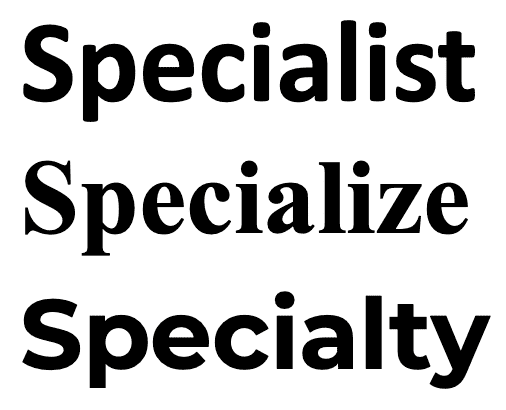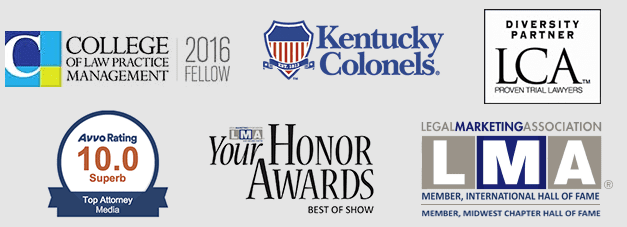In your state, can a lawyer claim to “specialize”?
Marketing is an essential aspect of any law firm’s operations. Lawyers need to adhere to strict ethical guidelines regarding the marketing of their services. Rule 7.4 of the ABA Model Rules of Professional Conduct regulates how lawyers can use the term “specialist,” “specialty,” or “specialize” when marketing their legal services. In this blog post, we will discuss the top 10 marketing-ethics mistakes lawyers make in violating Rule 7.4, along with an example for each mistake. 
- Using the Term “Specialist” Without Certification: Rule 7.4 prohibits lawyers from using the term “specialist,” “specialize,” or “specialty,” unless they have been certified as a specialist by an appropriate authority. For example, a lawyer might use the term “criminal law specialist” without being certified as such by a recognized certification body. This rule has been softened or deleted in many states, check your local rules. (Where it still exists, the common marketing workaround is replacing “specialize” with “concentrates” or “focuses.”)
- Making False or Misleading Statements: Rule 7.4 prohibits lawyers from making false or misleading statements about their certification or expertise. For example, a lawyer might falsely claim to be a “certified specialist” in a particular area of law.
- Failing to Disclose Certification Body: Rule 7.4 requires lawyers to disclose the name of the certification body that has certified them as a specialist. For example, a lawyer might advertise themselves as a “specialist in personal injury law” without mentioning the certification body that certified them.
- Using Unapproved Certification Titles: Rule 7.4 prohibits lawyers from using any titles or descriptions of their certification that have not been approved by the appropriate authority. For example, a lawyer might use the term “certified legal specialist” when their certification body only approves the use of the term “specialist.”
- Failing to Update Certification: Rule 7.4 requires lawyers to update their certification status as appropriate. For example, a lawyer might continue to advertise themselves as a “specialist in real estate law” even though their certification has expired.
- Making Comparative Statements: Rule 7.4 prohibits lawyers from making comparative statements about their certification or expertise that are not verifiable. For example, a lawyer might claim to be the “best specialist in employment law,” which is a subjective statement that cannot be verified.
- Failing to Identify Limitations: Rule 7.4 requires lawyers to identify any limitations on their certification or expertise. For example, a lawyer might advertise themselves as a “specialist in bankruptcy law” without disclosing that their certification only covers consumer bankruptcy and not business bankruptcy.
- Making Claims About the Certification Process: Rule 7.4 prohibits lawyers from making false or misleading statements about the certification process. For example, a lawyer might claim or imply that their certification is “harder to obtain” than other certifications when this is not supported by evidence.
- Advertising Without Certification: Rule 7.4 prohibits lawyers from advertising themselves as a specialist if they have not been certified as such by an appropriate authority. For example, a lawyer might claim to be a “specialist in immigration law” even though they have not been certified as a specialist by a recognized certification body.
- Using Certification to Disparage Other Lawyers: Rule 7.4 prohibits lawyers from using their certification to imply that other lawyers who are not certified are less competent or qualified. For example, a lawyer might advertise themselves as a “certified specialist in tax law” and imply that other tax lawyers who are not certified are less competent.
In conclusion, marketing for lawyers is a crucial aspect of building and maintaining a successful law practice. However, it is important to remember that lawyers are held to a higher standard of ethics in their marketing practices due to their position as legal professionals. Violating the ABA Model Rules of Professional Conduct can have serious consequences, including disciplinary action and damage to one’s professional reputation.
By being aware of the top marketing-ethics mistakes and following the rules and guidelines set forth by the ABA, lawyers can effectively market their services while maintaining the integrity of the legal profession. It is important to remember that marketing for lawyers should always be approached with a commitment to honesty, transparency, and respect for the legal profession and its clients.
———————-
Need a new advertisement, brand, or website?
Contact Ross now at: ross [at] fishmanmarketing.com or +1.847.921.7677.
Download a free copy of his best-selling strategy and branding book, “We’re Smart. We’re Old. And We’re the Best at Everything.” here or buy an actual book on Amazon here.
Do your lawyers need marketing training or a dynamic speaker at a firm retreat, either live or via webinar? Ross is one of the legal profession’s most-popular marketing and CLE presenters. Here’s a link to a video of Ross in action.

